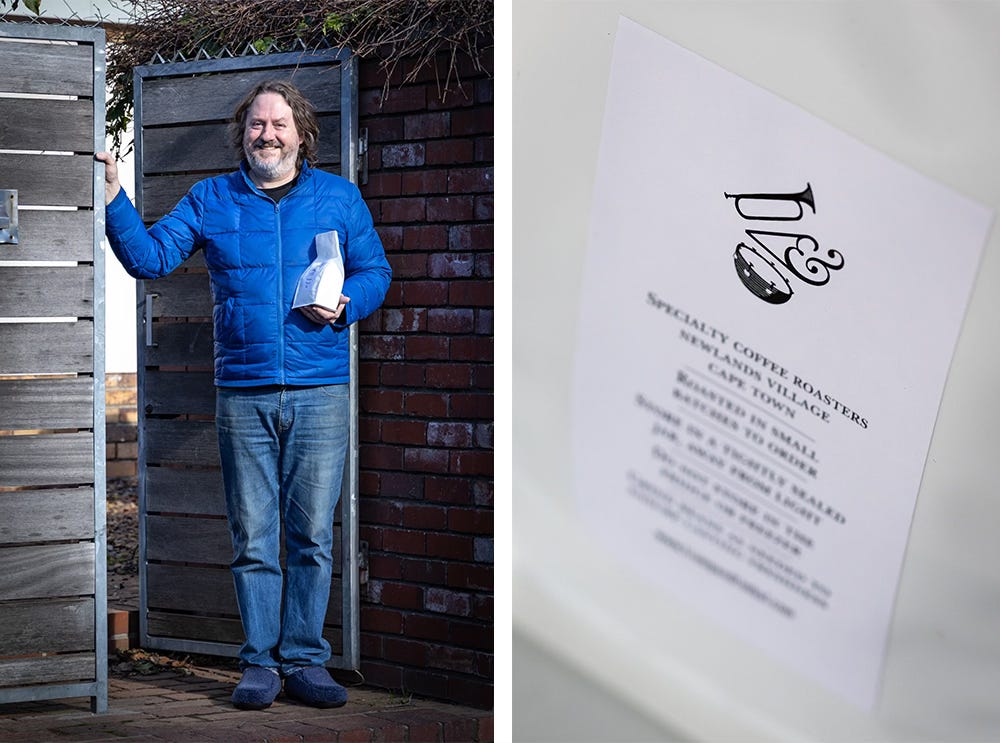This post is a little out of the ordinary but perhaps the (approved) eavesdropping on these voice notes and video clip may leave you feeling inspired. Comments are also open below, should you feel moved to join the conversation. Enjoy!
This story starts, as most do these days, with an early morning run. As we ran up a suburban road, friend and fellow runner, Astrid, pointed to a house I may otherwise not have noticed, saying, ‘That’s where I buy my coffee. I think you and Richard would get along very well.’ Astrid knows. We now order coffee from Richard, he signed up to receive our Supertasters newsletter, and the voice note above is Richard’s response after making the Bondolo we highlighted this month.
We’re sharing it (with Richard’s blessing) because it was a life-affirming exchange that reminded us, what we write here is not a directive but inspiration for you to run with (no pun intended) in your own context. As we kept up the conversation through the cooking, we learned along; like if our (mutual) local butcher only has cubed chuck not a whole roast, that can also work well. I earmarked Einkorn pasta from a Knysna miller for our next round. And got to taste vicariously through Richard’s evocative description, a special gift of wine from another region in Italy.
Brandon’s Chuck Bondolo is one of the most popular posts on our site. To clear up any confusion about the ‘Bondolo’, it’s a made-up word – a mashup of a nickname from years ago (Bond) and the wine Barolo. We are not Italian, we live in Cape Town, and don’t always have easy access to Barolo, a key ingredient in the original Piedmontese pot roast. Just as Richard’s feedback was coming through, I happened upon some relevant advice from Marcella Hazan1 that may help if you find yourself in another part of the world:
[…] an ideal rendition of it would call for Barolo in the pot as well as Barolo in your glass. If you must make a substitution, try to use another Piedmontese red, such as Barbaresco or a fine Barbera. Other suitable choices: Rhône wine, California Syrah or Zinfandel, Shiraz from Australia or South Africa.
Richard shared all the details, right down to the potential choices for his own glass (some locals and one Italian). Take a listen (below) to hear his thoughts and how he made it. Richard seasoned it in a style that is wholly his own, but what each of our versions had in common was the silkiness of the sauce. Seeing it through his eyes, reminded me how Brandon focusses as much on achieving a pleasing texture in his cooking as he does on building punchy flavour – whether in a soup or a sauce.
A voice note on the process
A video showing the texture
A roundup of the wine choices with the accompanying pasta
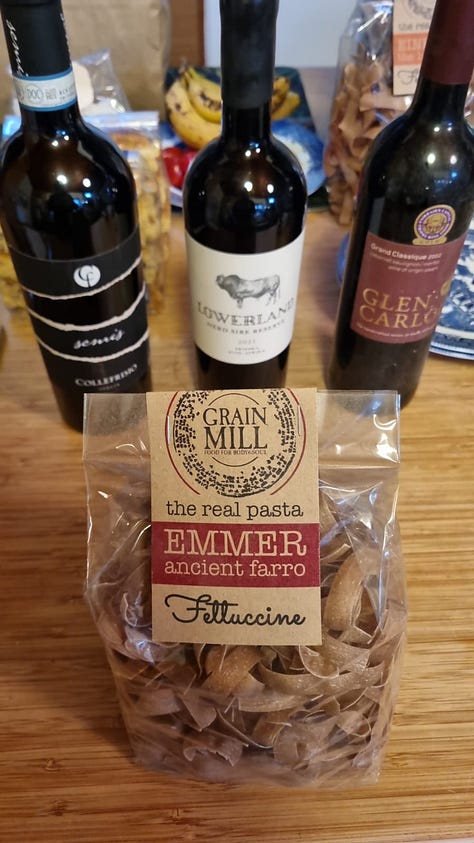
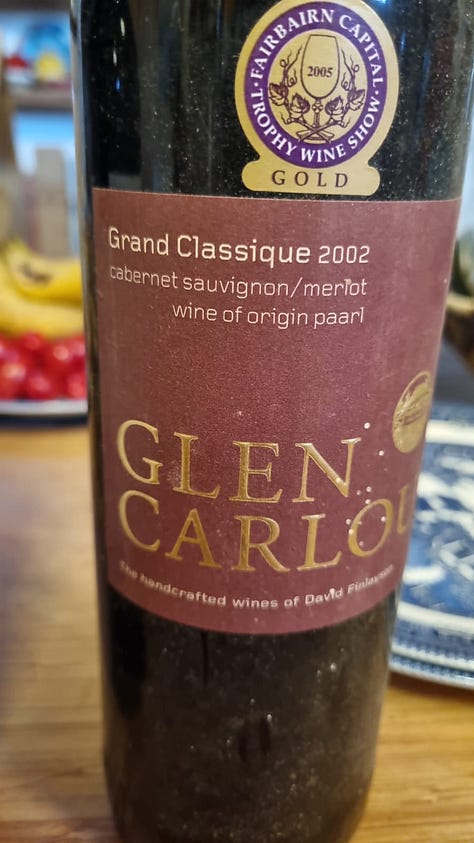
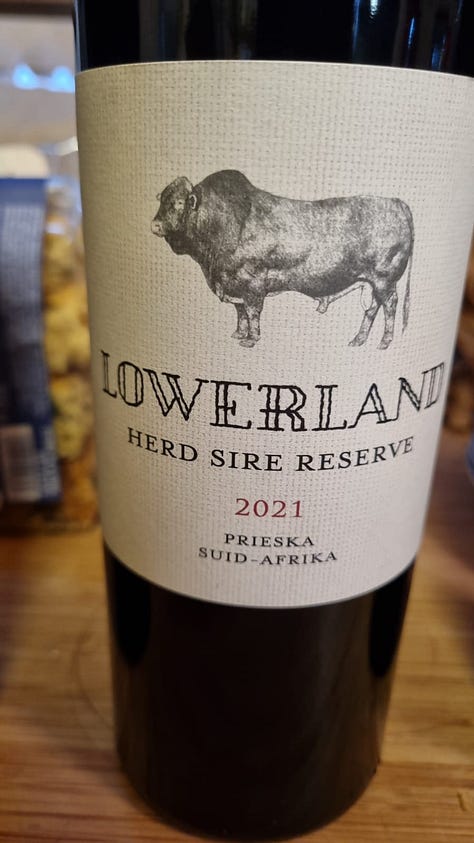
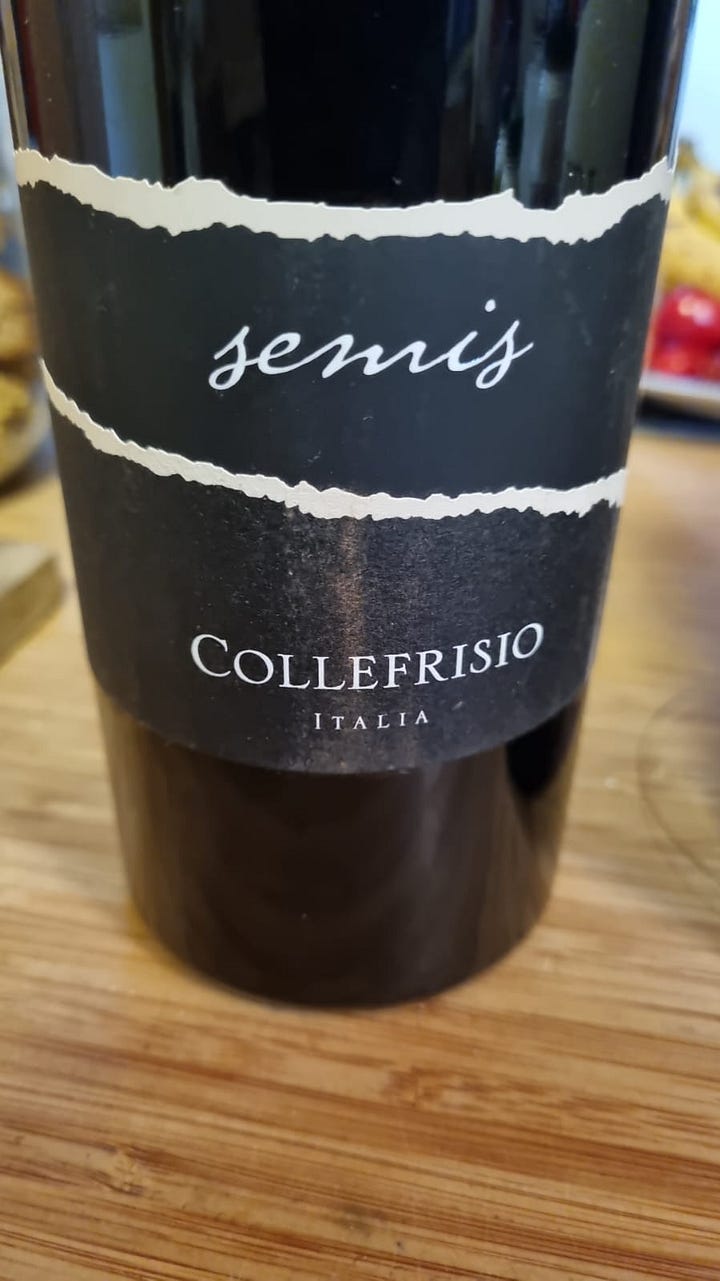
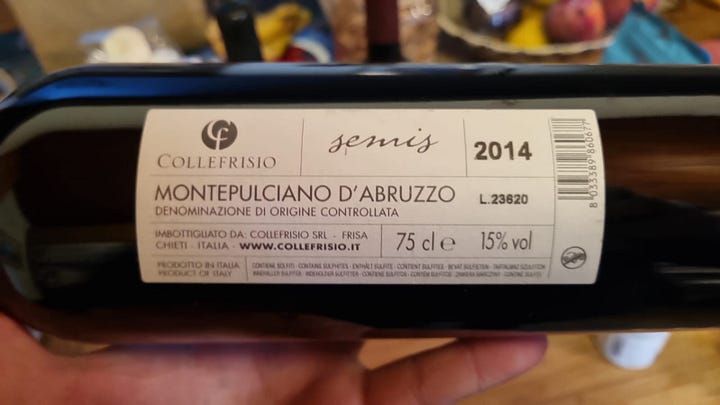
The Gate Conversations
After studying the descriptions on Richard’s broadcast list and a considered voice-note exchange about coffee preferences, we found a spot-on standing order. Since Richard is a fellow writer, the in-person pick up often leads to talking (bags of coffee in hand, cars whizzing by) about writing, music, movies, and, more recently, mystics. It’s like a live extension of what Richard refers to in his broadcast newsletter as beyond the ‘tilde curtain’, which may cover anything from an education in classical music history and his favourite composers (with accompanying Spotify links) to poetry, including (if readers are in luck) some of his own.
Besides being the gateway to my drug of choice (the coffee in case there’s any doubt), I inevitably leave Richard’s gate with a reading list, a learning, or a healthy dose of optimism – sometimes more welcome than the caffeine in our current times. The mention of our ‘Trump chop’ post led to asking about the origins of his brand name, Trump & Timbal, which has nothing to do with a certain American president but everything to do with a verse from a carol that Richard, as a self-proclaimed Christmasphile, is fond of. He drew my attention to the graphic, which includes a trumpet and a drum, the ‘trump and tymbal’ in the hymn’s verse below.
That I may hear this musick clear:
Harp, dulcimer, lute,
With cymbal, trump and tymbal,
And the tender, soothing flute.
It feels fitting since strains of classical can sometimes be heard from behind Richard’s gate. The date of the original text (1600s) leads us into coffee houses, The Age of Enlightenment, and Bach’s Coffee Cantata, a comedic opera. In it a father tries to control his daughter and her penchant for coffee through marriage. The Soprano-singing daughter is savvy enough to draw up a prenup stating she may brew coffee to her heart’s content. I’m not sure if I like her more for her advocating for herself or for her description of coffee. Fortunately, the moral of the tale is that a love for coffee is natural and understandable. Amen to that.
Ei! wie schmeckt der Coffee süße,
Lieblicher als tausend Küsse,
Milder als Muskatenwein.
Coffee, Coffee muß ich haben,
Und wenn jemand mich will laben,
Ach, so schenkt mir Coffee ein!Ah! how sweet coffee tastes,
Lovelier than a thousand kisses,
Mellower than muscatel wine.
Coffee, I must have coffee,
And if anyone wants to do me good
Oh, just give me some coffee!
To read Richard’s poetry click here for his All Poetry profile page and to join the coffee broadcast list send a WhatsApp message to 082 562 5526.
And here’s a performance of the Coffee Cantata I’ve been enjoying for Nola Richardson’s performance as Lieschen (the daughter).
The Essential of Classic Italian Cooking by Marcella Hazan (London: Macmillan, 1992)




